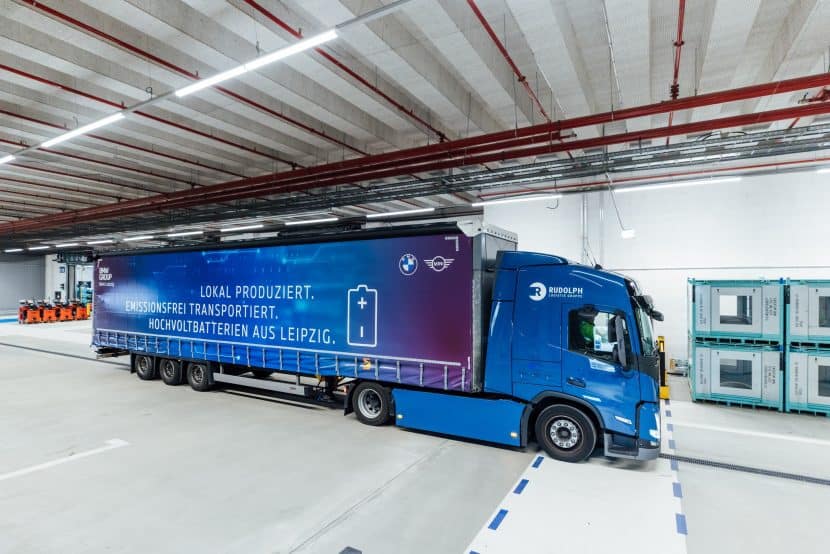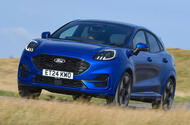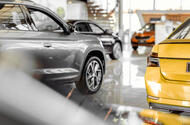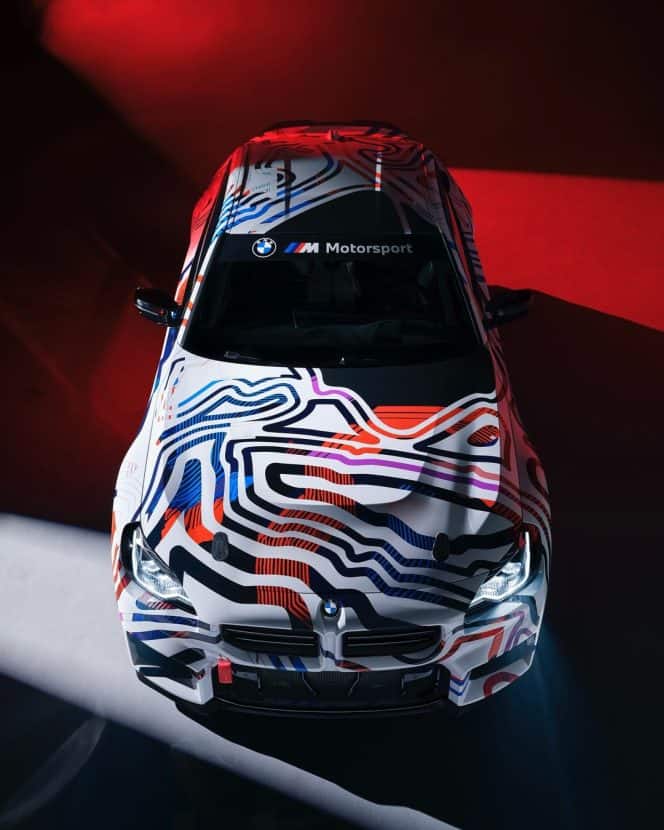Before you ask, no, BMW isn’t venturing into the truck segment. Instead, it’s using two fully electric trucks from German company Designwerk to haul components for EVs. Specifically, battery cells and battery modules are transported with these huge workhorses that have zero emissions. The components are carried from the BMW Allee warehouse to the battery production center at the Leipzig plant.
The two trucks cover nearly 62 miles (100 kilometers) each, every single day. The five-mile (eight-kilometer) round trip is done up to 12 times a day. The journey may be short, but the CO2 emissions savings add up. BMW has done the math and claims it’ll be able to save approximately nine tons of carbon dioxide annually compared to conventional diesel-fueled trucks. They’re also claimed to be about five decibels less noisy than an equivalent diesel truck.
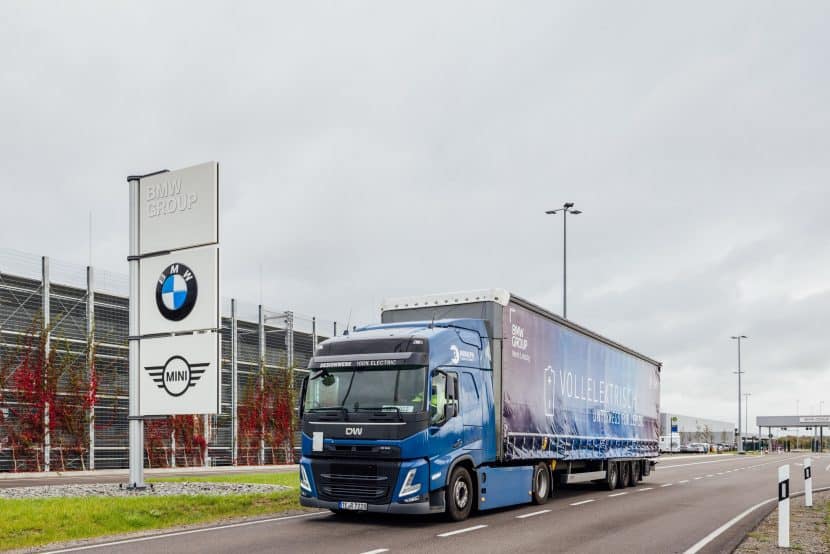
Designwerk’s electric trucks have four motors delivering 610 hp. The e-motors get their juice from a lithium iron phosphate battery pack with a 340-kWh capacity. It takes around an hour and a half to recharge the battery to 80%. After about 3,000 charges, the e-truck’s battery needs to be replaced.
The battery packs assembled in Leipzig go into the BMW iX1, iX2, i4, i5, iX, and the electric MINI Countryman. These batteries are made at the same factory where the quirky i3 and the low-slung i8 were once assembled. The “i3” name technically isn’t dead considering it’s been repurposed for an electric, long-wheelbase 3 Series Sedan built and sold in China.
BMW can make as many as 300,000 battery packs each year at Plant Leipzig. About 1,000 employees are needed to make it happen. Battery production takes up around 150,000 square meters of space at the factory where the company has invested more than €900 million in the production of components for EVs. It’s been making e-parts at this site since 2021.
Source: BMW
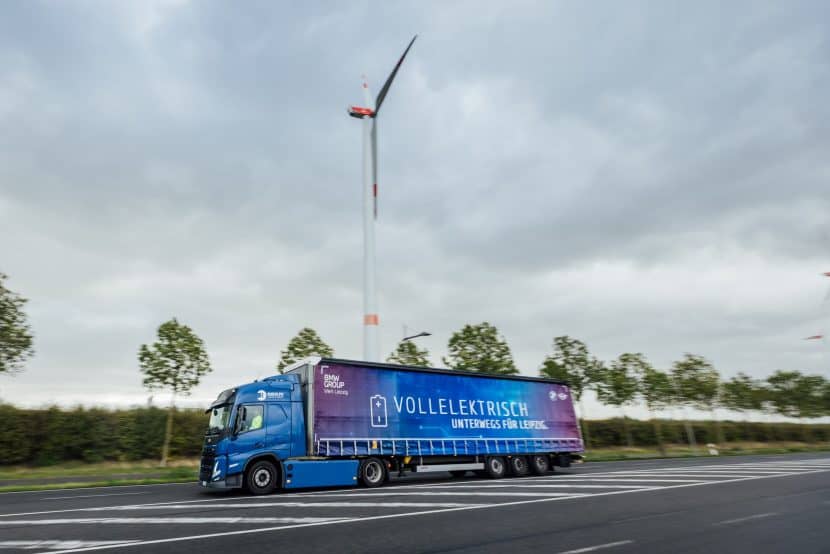
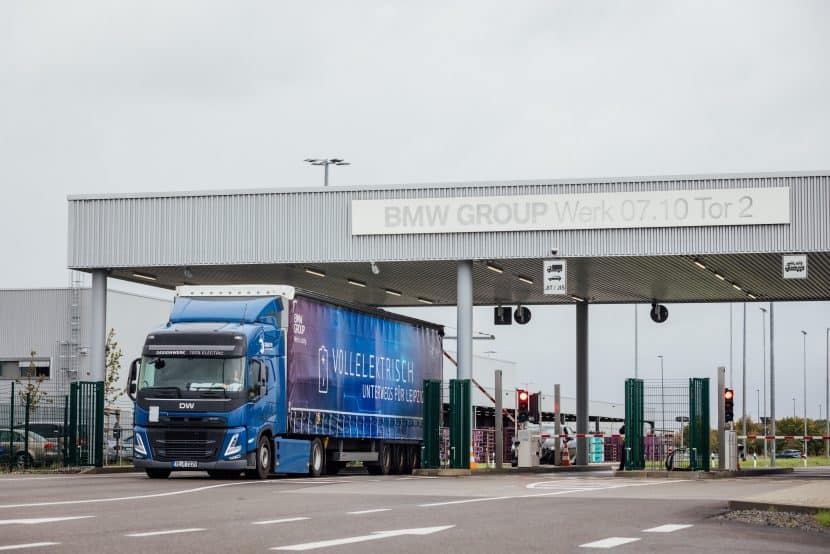
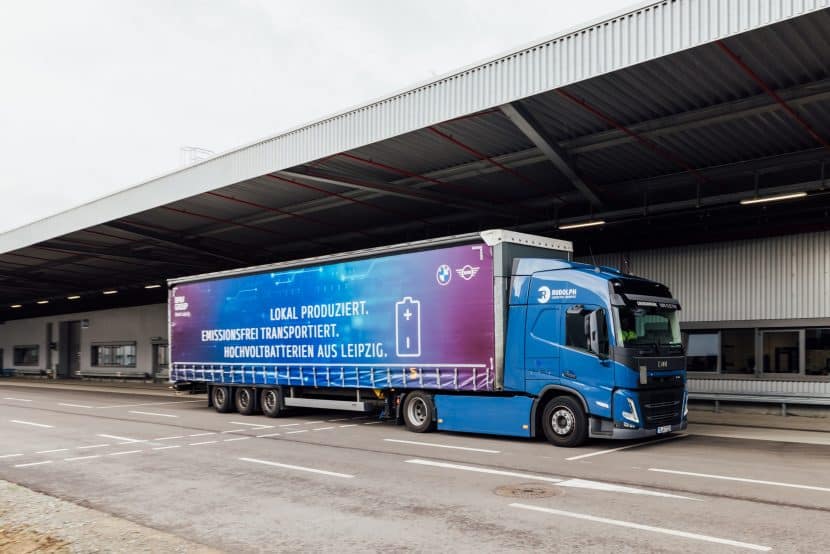
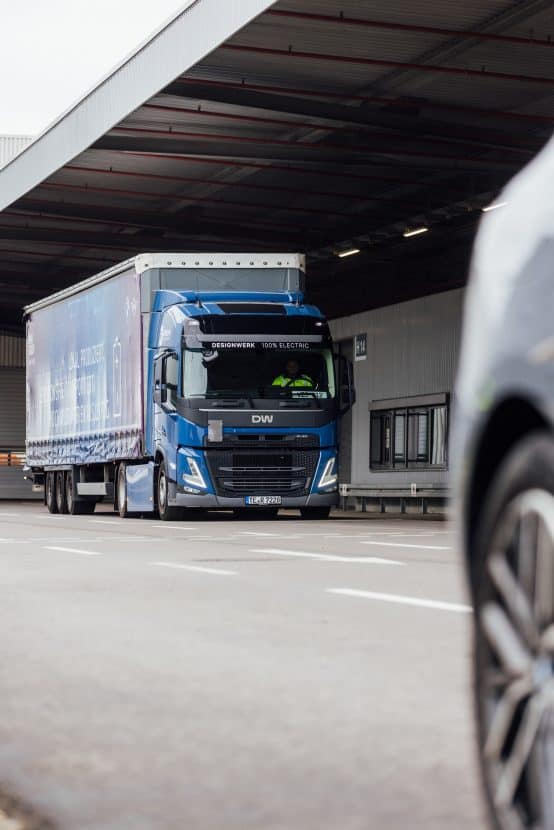
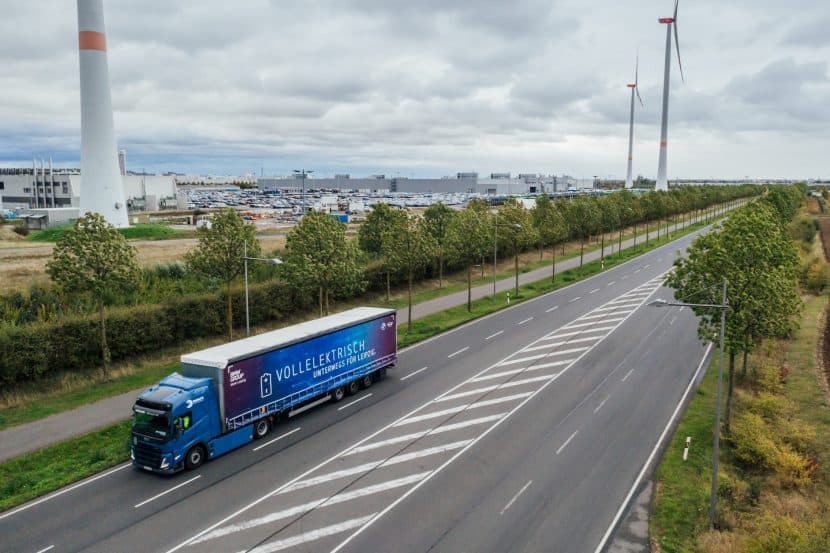
First published by https://www.bmwblog.com
Source: BMW BLOG
